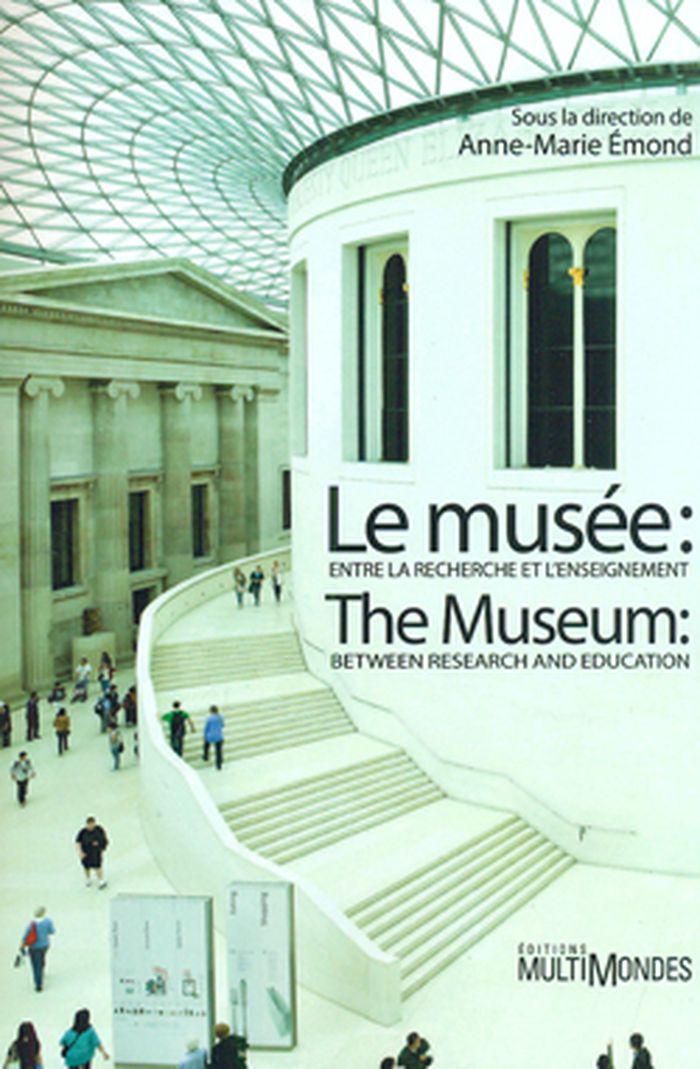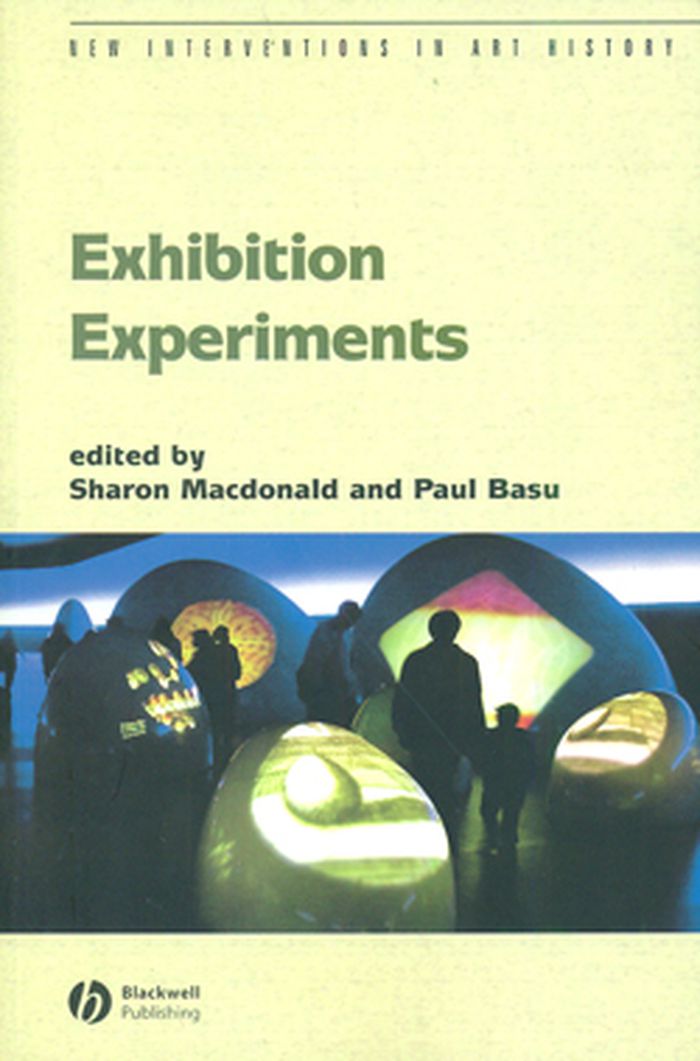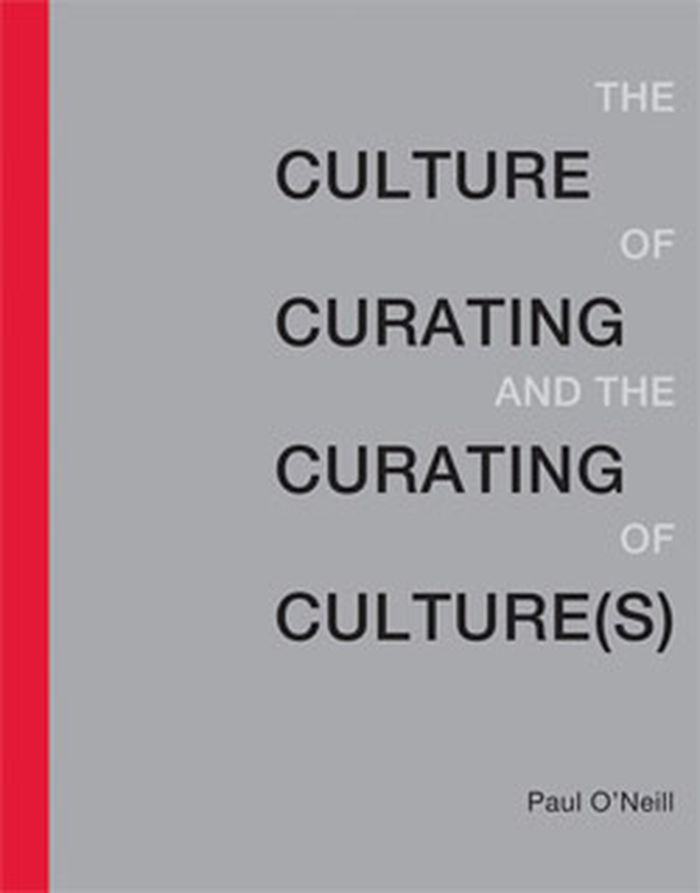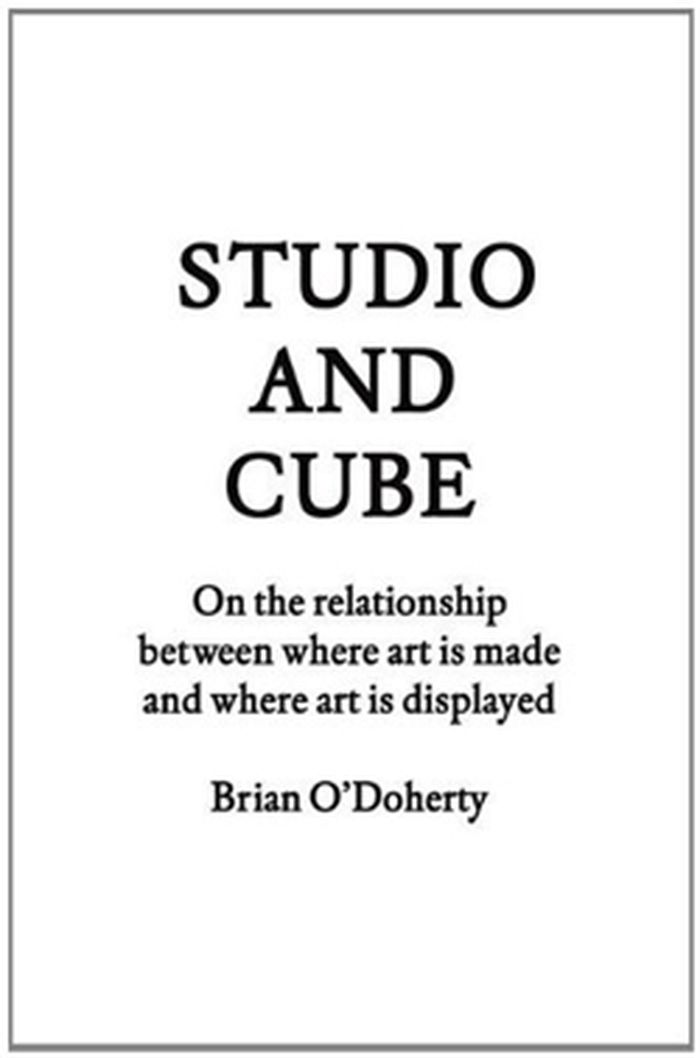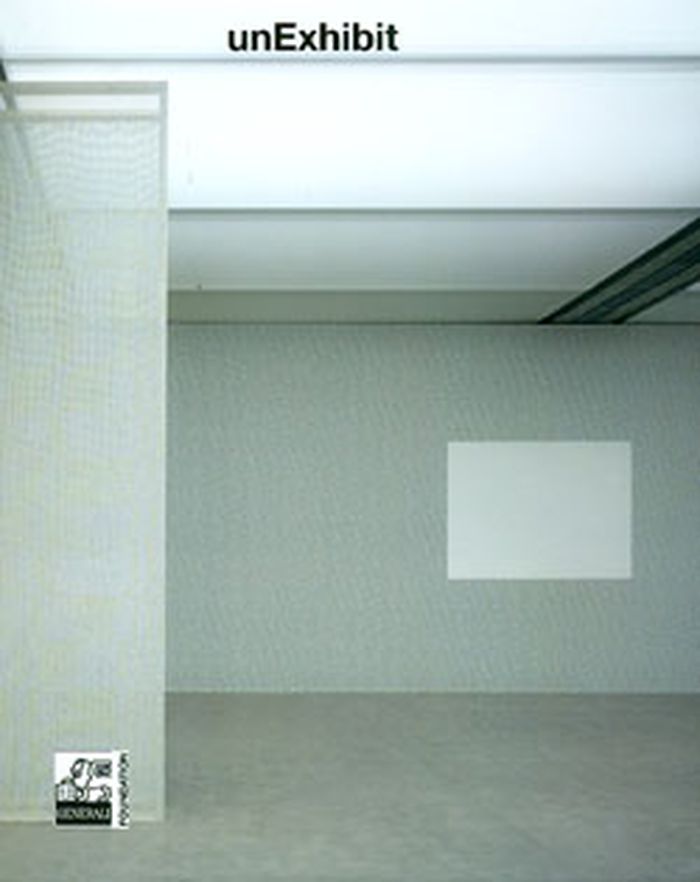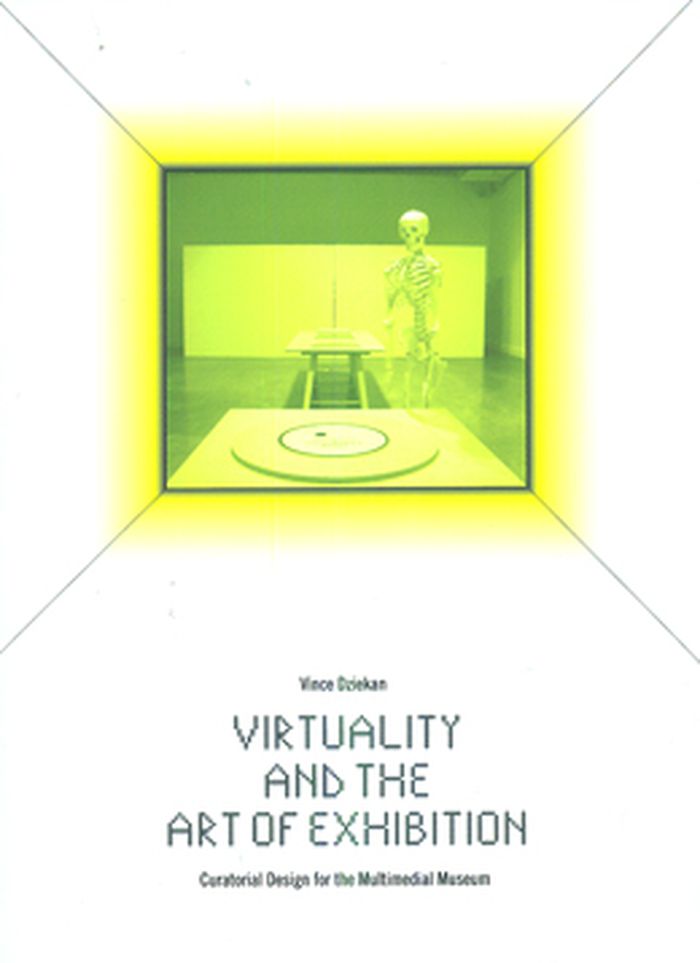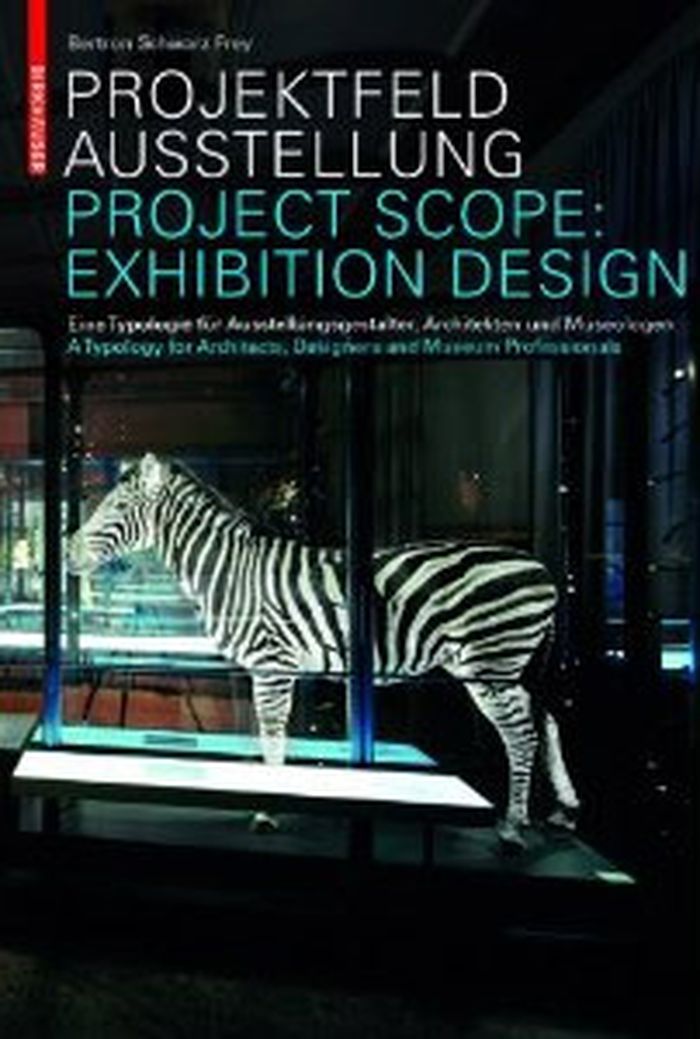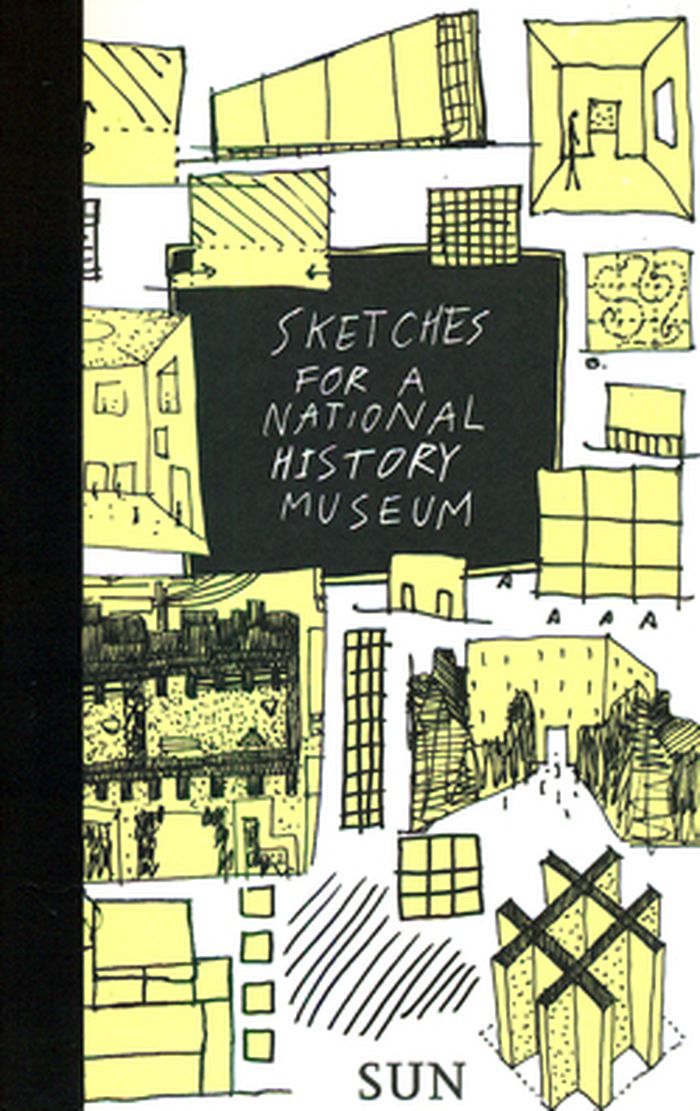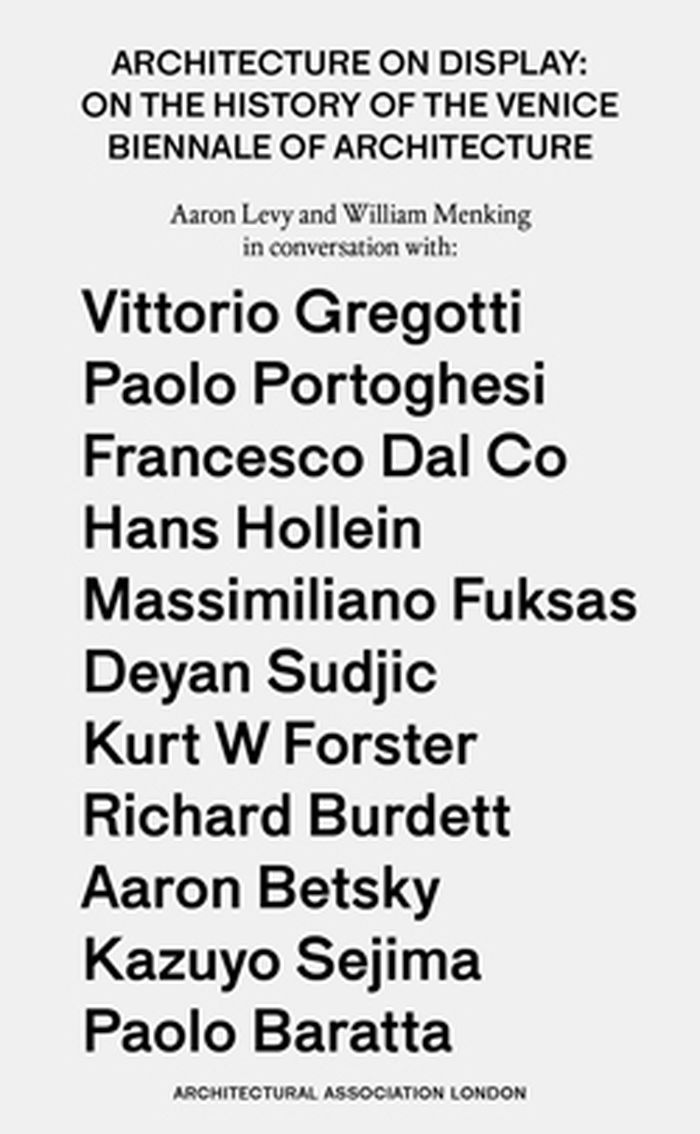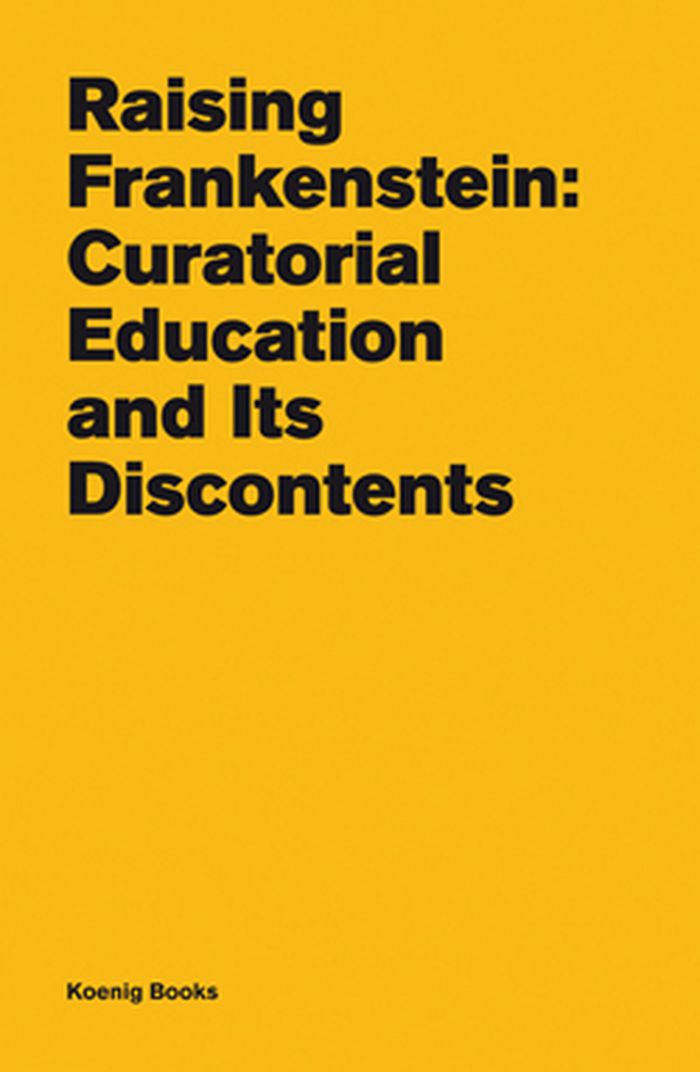$34.95
(disponible sur commande)
Résumé:
Cet ouvrage s’articule autour de cette nécessité qu’a l’institution muséale de concevoir des activités favorisant un enrichissement intellectuel. Les axes de cet ouvrage, au nombre de deux, sont : le musée en tant que sujet de recherche et le musée en tant qu’outil d’enseignement. Réunissant des chercheurs actifs dans le domaine muséal, ce livre présente un grand(...)
Le musée: entre la recherche et l'enseignement
Actions:
Prix:
$34.95
(disponible sur commande)
Résumé:
Cet ouvrage s’articule autour de cette nécessité qu’a l’institution muséale de concevoir des activités favorisant un enrichissement intellectuel. Les axes de cet ouvrage, au nombre de deux, sont : le musée en tant que sujet de recherche et le musée en tant qu’outil d’enseignement. Réunissant des chercheurs actifs dans le domaine muséal, ce livre présente un grand échantillonnage des recherches en lien avec le musée.
Muséologie
Exhibition experiments
$48.99
(disponible sur commande)
Résumé:
Exhibition Experiments is a an anthology which considers experiments with museological form that challenge our understanding and experience of museums and exhibitions. Exploring examples from around the world, this publication investigates a range of topical issues which chart the frontier of museum studies. These include: the popularity and proliferation of museum(...)
Exhibition experiments
Actions:
Prix:
$48.99
(disponible sur commande)
Résumé:
Exhibition Experiments is a an anthology which considers experiments with museological form that challenge our understanding and experience of museums and exhibitions. Exploring examples from around the world, this publication investigates a range of topical issues which chart the frontier of museum studies. These include: the popularity and proliferation of museum experimentation, novel exhibitionary forms and their implications for knowledge and identity, transformations of architecture and design, narrative and navigation, juxtapositions of art with science and ethnography, the fate of conventional notions of "object" and "representation," and the disorientating yet stimulating consequences of all this for museum-going. This collection brings together a mix of art historians, anthropologists, curators, and sociologists to question traditional disciplinary boundaries. Contributors tackle a range of examples of experimentalism from many different countries and exhibition spaces, and combine them with cutting-edge museum theory.
Muséologie
$29.95
(disponible sur commande)
Résumé:
Once considered a mere caretaker for collections, the curator is now widely viewed as a globally connected auteur. Over the last twenty-five years, as international group exhibitions and biennials have become the dominant mode of presenting contemporary art to the public, curatorship has begun to be perceived as a constellation of creative activities not unlike artistic(...)
The culture of curating and the curating of culture(s)
Actions:
Prix:
$29.95
(disponible sur commande)
Résumé:
Once considered a mere caretaker for collections, the curator is now widely viewed as a globally connected auteur. Over the last twenty-five years, as international group exhibitions and biennials have become the dominant mode of presenting contemporary art to the public, curatorship has begun to be perceived as a constellation of creative activities not unlike artistic praxis. The curator has gone from being a behind-the-scenes organizer and selector to a visible, centrally important cultural producer. In The Culture of Curating and the Curating of Culture(s), Paul O’Neill examines the emergence of independent curatorship and the discourse that helped to establish it. O’Neill describes how, by the 1980s, curated group exhibitions - large-scale, temporary projects with artworks cast as illustrative fragments - came to be understood as the creative work of curator-auteurs. The proliferation of new biennials and other large international exhibitions in the 1990s created a cohort of high-profile, globally mobile curators, moving from Venice to Paris to Kassel. In the 1990s, curatorial and artistic practice converged, blurring the distinction between artist and curator. O’Neill argues that this change in the understanding of curatorship was shaped by a curator-centered discourse that effectively advocated - and authorized - the new independent curatorial practice. Drawing on the extensive curatorial literature and his own interviews with leading curators, critics, art historians, and artists, O’Neill traces the development of the curator-as-artist model and the ways it has been contested. The Culture of Curating and the Curating of Culture(s) documents the many ways in which our perception of art has been transformed by curating and the discourses surrounding it.
Muséologie
$30.95
(disponible en magasin)
Résumé:
When does an artists creation become art, and where? Does it occur in the solitary confines of an artists studio, or does it require the context of an art gallerys white cube? Studio and Cube is author Brian O'Dohertys long-awaited follow-up to his seminal 1976 essays for Artforum, republished in 1999 as Inside the White Cube : The Ideology of the Gallery Space. In Studio(...)
novembre 2012
Studio and cube : on the relationship between where art is made and where art is displayed
Actions:
Prix:
$30.95
(disponible en magasin)
Résumé:
When does an artists creation become art, and where? Does it occur in the solitary confines of an artists studio, or does it require the context of an art gallerys white cube? Studio and Cube is author Brian O'Dohertys long-awaited follow-up to his seminal 1976 essays for Artforum, republished in 1999 as Inside the White Cube : The Ideology of the Gallery Space. In Studio and Cube, now available in paperback, O'Doherty expands his interpretation to include the artists studio, tracking the relationship between the artwork and the artist from Vermeer through late modernism.
unExhibit
$66.00
(disponible sur commande)
Résumé:
This publication takes up the question of the “display as exhibition” in works by Maria Eichhorn, Richard Hamilton, Ann Veronica Janssens, Willem Oorebeek, Karthik Pandian and Mathias Poledna, Joëlle Tuerlinck and Heimo Zobernig. The book not only examines display as a material gesture, but also studies artistic methods of not showing and withdrawing - of “un-exhibiting.”
unExhibit
Actions:
Prix:
$66.00
(disponible sur commande)
Résumé:
This publication takes up the question of the “display as exhibition” in works by Maria Eichhorn, Richard Hamilton, Ann Veronica Janssens, Willem Oorebeek, Karthik Pandian and Mathias Poledna, Joëlle Tuerlinck and Heimo Zobernig. The book not only examines display as a material gesture, but also studies artistic methods of not showing and withdrawing - of “un-exhibiting.”
Muséologie
$43.95
(disponible en magasin)
Résumé:
Digital technologies are playing an increasingly instrumental role in guiding the curatorial and institutional strategies of contemporary art museums today. Designed around contextual studies of virtuality and the art of exhibition, this interdisciplinary volume applies practice-based research to a broad range of topics, including digital mediation, spatial practice, the(...)
Virtuality and the art of exhibition: curatorial design for the multimedia museum
Actions:
Prix:
$43.95
(disponible en magasin)
Résumé:
Digital technologies are playing an increasingly instrumental role in guiding the curatorial and institutional strategies of contemporary art museums today. Designed around contextual studies of virtuality and the art of exhibition, this interdisciplinary volume applies practice-based research to a broad range of topics, including digital mediation, spatial practice, the multimedial museum, and curatorial design. Rounding out the volume are case studies with accompanying illustrations.
Muséologie
Project scope: exhibition design, a typology for architects, designers and museum professionals
$72.95
(disponible sur commande)
Résumé:
This publication elaborates the special features of various thematic fields such as nature, archeology, history, art, and science since each represents different challenges for an exhibition design. Exemplary case studies clarify the specific features of the exhibition types presented with essays on the theory and practice of exhibition designs. Sketches, floor plans,(...)
Project scope: exhibition design, a typology for architects, designers and museum professionals
Actions:
Prix:
$72.95
(disponible sur commande)
Résumé:
This publication elaborates the special features of various thematic fields such as nature, archeology, history, art, and science since each represents different challenges for an exhibition design. Exemplary case studies clarify the specific features of the exhibition types presented with essays on the theory and practice of exhibition designs. Sketches, floor plans, visualizations, and attractive photographs illustrate the approach, whose essential structure remains the same while finding a different solution for each theme.
Muséologie
$32.00
(disponible sur commande)
Résumé:
This book presents various designs for a National History Museum in the Netherlands. Kenneth Frampton and Hans Ibelings wrote essays on good museum architecture, researchers at the Berlage Institute made sketches, and three young European architecture firms, 51N4E, Baukuh, and Monadnock, submitted plans to encourage thinking about new museum architecture.
Sketches for a national history museum
Actions:
Prix:
$32.00
(disponible sur commande)
Résumé:
This book presents various designs for a National History Museum in the Netherlands. Kenneth Frampton and Hans Ibelings wrote essays on good museum architecture, researchers at the Berlage Institute made sketches, and three young European architecture firms, 51N4E, Baukuh, and Monadnock, submitted plans to encourage thinking about new museum architecture.
Muséologie
$19.95
(disponible sur commande)
Résumé:
Architecture on Display is a research initiative that consists of interviews with each of the living directors of the Venice Biennale for Architecture. The origins of the architecture biennale are generally traced to the 1970s, when it emerged from under the umbrella of the larger Venice Biennale, which was itself established in 1895. Since then it has become one of the(...)
Architecture on display: On the history of the Venice Biennale of Architecture
Actions:
Prix:
$19.95
(disponible sur commande)
Résumé:
Architecture on Display is a research initiative that consists of interviews with each of the living directors of the Venice Biennale for Architecture. The origins of the architecture biennale are generally traced to the 1970s, when it emerged from under the umbrella of the larger Venice Biennale, which was itself established in 1895. Since then it has become one of the most prestigious forums for architectural discourse today, and has served as a model for a range of international exhibitions. The book explores the biennale through the directors who established its particular discourse, including Vittorio Gregotti, Paolo Portoghesi, Francesco Dal Co, Kurt W Forster, Massimiliano Fuksas, Hans Hollein, Richard Burdett, Deyan Sudjic, Aaron Betsky and Kazuyo Sejima, as well as the current president of the Venice Biennale, Paolo Barrata. These conversations do not seek to recapitulate the exhibitions themselves but rather explore the questions that these exhibitions raise, with the hope of offering a model for future curatorial endeavours.
Muséologie
$27.00
(disponible sur commande)
Résumé:
The postwar ascent of the curator as both cultural broker and creative participant in the work of art has seen the discipline acquire a brief but rich history of its own. Raising Frankenstein: Curatorial Education and Its Discontents unites curatorial studies with the increasingly debated subject of "the educational turn." Edited by Kitty Scott, whose own career as a(...)
Raising Frankenstein: Curatorial education and its discontents
Actions:
Prix:
$27.00
(disponible sur commande)
Résumé:
The postwar ascent of the curator as both cultural broker and creative participant in the work of art has seen the discipline acquire a brief but rich history of its own. Raising Frankenstein: Curatorial Education and Its Discontents unites curatorial studies with the increasingly debated subject of "the educational turn." Edited by Kitty Scott, whose own career as a curator of contemporary art has taken her from the National Gallery in Ottawa to the Serpentine Gallery in London and the Banff Centre in Alberta, it presents a collection of essays that explores the education and formation of curators. Writings on curatorial pedagogy by Barbara Fischer, Teresa Gleadowe, Francesco Manacorda, Cuauhtémoc Medina and Lourdes Morales offer an overview of recent thought on curatorial pedagogy, elucidating, defining and building on current debates surrounding this subject.
Muséologie
